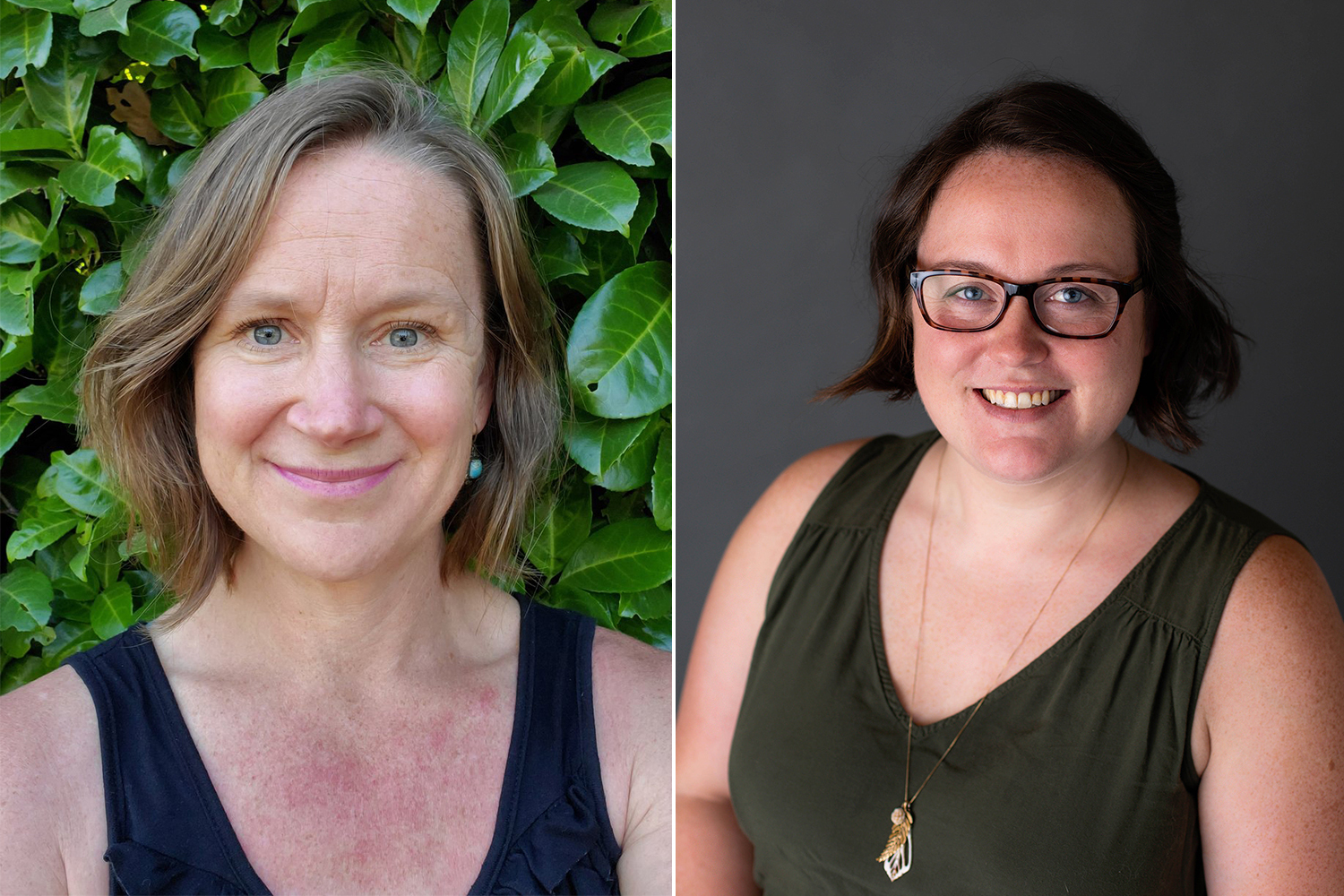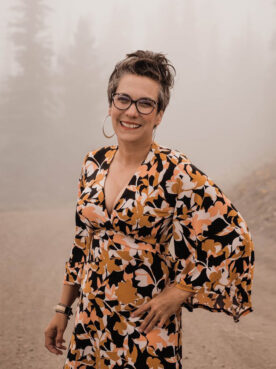(RNS) — Elevated by evangelical Christian missionaries, Kara Erickson struggled for decades with stress, depression and having issues that two many years back landed her in inpatient procedure. It was not until a few a long time back, however, that she stumbled onto the phrase “religious trauma” in Jamie Lee Finch’s 2019 e book “You Are Your Own: A Reckoning With the Religious Trauma of Evangelical Christianity.”
Which is when she related the dots in between her spiritual upbringing and her actual physical indicators.
“I had been approaching my depression and taking in dysfunction from this place of ‘You are damaged and need to be preset.’ Trauma aided me have an understanding of that I am wounded and have to have to be healed,” Erickson explained to Religion News Company.
Soon right before her revelation, Erickson, who worked as a juvenile prison counselor ahead of moving to Canada in 2009, satisfied Lydia Bakkar in an on the internet workshop in Vancouver for mothers looking to “find their spark.” At age 16, Bakkar had left what she now calls a fundamentalist Christian cult the place her father was a chief. The two gals bonded around their drive to support men and women who experienced been harmed by the church.

Beyond the Wound co-founders Kara Erickson, left, and Lydia Bakkar. (Erickson picture courtesy of Over and above the Wound. Bakkar image by Karyn Mcnenery.)
Combining Erickson’s vision and Bakkar’s business experience — she owns a knitting and crochet enterprise in the Seattle area — the two have launched a new on the net conference on spiritual trauma that starts Sunday (Jan. 15).
Beyond the Wound, which will extend about 3 weeks, will feature a blend of livestreamed sessions and prerecorded interviews with therapists, students and other experts examining spiritual trauma from a neurological point of view. Extra than 260 attendees from throughout the globe have registered.
“It’s offering men and women permission to come to feel, to acknowledge them selves, to trust them selves, and, introducing on these techniques and equipment, to be ready to shift on and discover what is heading to be excellent for you,” Bakkar stated.
Erickson extra, “We needed to make the source we wish we would have had.”

Laura Anderson. Picture by Danielle Shields
Clinicians have started to analyze religious trauma a lot more severely in the earlier decade, aided by elevated tutorial exploration into what has come to be a widespread movement, in particular between men and women lifted in evangelical Christianity. Various organizations targeted on religious trauma, such as Recovering From Faith, the Reclamation Collective and the Religious Trauma Institute, have popped up considering that 2010.
“Religious trauma has been a thing because religion has been a detail,” reported Laura Anderson, a Nashville, Tennessee, psychotherapist, co-founder of the Spiritual Trauma Institute and founder of the Heart for Trauma Resolution and Restoration, who is presenting at the meeting, The term alone, even so, is a latest coinage as psychologists have determined trauma far more broadly and formulated new strategies for managing it.
“When 2016 hits, we started off to see this exodus of people today coming out of churches just getting extremely perplexed about the outcome of the election of Donald Trump. That’s exactly where I believe publicly it started off to turn out to be Okay to chat about and name,” reported Anderson, including that the #MeToo and subsequent #ChurchToo movements also raised consciousness of spiritual abuse and spiritual trauma.
Thoughts about spiritual trauma frequently overlap with all those talked over in the religious “deconstruction” and “exvangelical” actions, aimed at debunking toxic theology and restrictive spiritual environments.

Danielle S. Castillejo. Photograph by using Wayfinding Therapy
Anderson claimed the symptoms of spiritual trauma are equivalent to these suffered by men and women who have lived in a war zone or in abusive environments. The recovery course of action, however, is distinct. Somewhat than doing the job through staying triggered by a car or truck backfire, for occasion, a person healing from religious purity culture, which glorifies sexual abstinence, could adopt a new framework for comprehending sexual intercourse and relationships, stated Anderson.
Danielle S. Castillejo, whose Wayfinding Remedy practice specializes in therapeutic racial hurt, sexual harm and religious trauma, said encouraging clientele get better from religious trauma often consists of inviting them to hear to their bodies.
“A good deal of situations, when it will come to spiritual abuse and non secular abuse, there’s so considerably of the body that you relinquish: your ideal to pay attention to your gut, your appropriate to make conclusions based on a great or a undesirable sensation.”
Castillejo can help clients to discern what their bodies could possibly have to have, regardless of whether it’s therapeutic massage, acupuncture or doctor’s visits. Castillejo will be co-hosting a virtual booth at the convention.
All presenters at this convention come from Christian backgrounds, like present and previous Catholics, evangelicals, Mormons and Jehovah’s Witnesses, even though men and women of any spiritual background are welcome to go to. Spiritual trauma can effect folks from any faith, the founders stated, and they hope the conference will increase in spiritual diversity in foreseeable future years.
Bakkar and Erickson are cautious to point out that the convention is not anti-faith but anti-damage. The stage isn’t to prescribe a religious or nonreligious route ahead — there are loads of deconstruction areas for that. As an alternative, Further than the Wound is about educating people today about religious trauma’s effects on the nervous process and supplying sources so attendees can opt for their next stage toward healing.
“You are not nuts. You are not damaged,” Bakkar stated about religious trauma survivors. Erickson added, “You make sense, and there is hope.”
